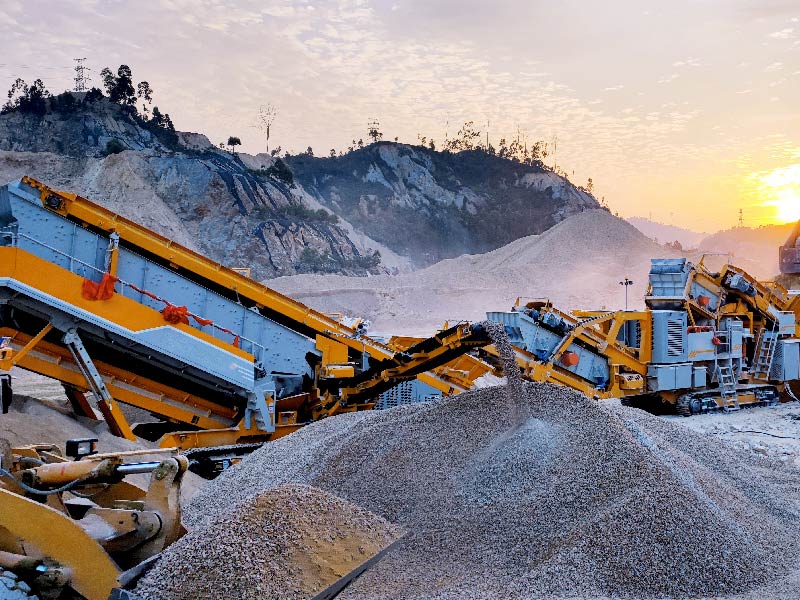The aggregate crushing plant industry plays a vital role in the mining and construction sectors, providing essential materials for a wide range of projects. From roads and bridges to buildings and other infrastructure, the demand for aggregates remains high. However, ensuring that an aggregate crushing plant is profitable requires a careful evaluation of several factors. In this article, we’ll explore how to enhance the profitability of an aggregate crushing plant and the key components that impact its success.
Key Factors Affecting Profitability in Aggregate Crushing
1. Efficient Operation of Crushing Equipment
The most significant factor impacting the profitability of an aggregate crusher plant(planta de trituración de agregados) is the efficient operation of the crushing equipment. Crushing machines must be optimized for maximum throughput and minimal downtime. Choosing high-quality, durable equipment like a mineral crusher can significantly increase productivity and reduce the need for frequent repairs.
- Regular Maintenance: To maintain profitability, it's essential to perform regular maintenance and inspections on crushers, screens, and other equipment. Preventive maintenance helps avoid costly repairs and ensures smooth operation.
- Proper Sizing: Correctly sizing the crusher to handle the material feed appropriately is crucial for maximizing output and minimizing energy consumption.
- Upgrading Technology: Utilizing modern technologies, such as automation, can help optimize crusher performance and reduce manual labor, contributing to long-term profitability.
2. Raw Material Quality and Availability
The quality and availability of raw materials(chancadora de mineral) directly impact the profitability of an aggregate crushing plant. High-quality raw materials lead to the production of better aggregates, which can command higher prices in the market. In contrast, poor-quality materials may result in lower sales prices and additional costs for processing.
- Mining Source: Sourcing materials from efficient and reliable mining operations ensures a steady supply of high-quality feedstock, reducing operational interruptions.
- Material Consistency: Consistent material properties help maintain production quality and reduce the likelihood of unexpected maintenance or adjustments in the crushing process.
3. Cost-Effective Energy Consumption
Energy costs are one of the most significant expenses for an aggregate crushing plant. Crushing and grinding operations require substantial amounts of power, and energy-efficient equipment can drastically reduce costs over time.
- Energy-Efficient Equipment: Investing in energy-efficient machines and optimizing the plant layout can significantly reduce electricity costs and improve profitability.
- Power Source: Exploring alternative energy sources, such as solar or wind, may help reduce dependency on traditional power grids and lower energy expenses.
4. Effective Product Marketing and Sales
Profitability is also influenced by how well the products of the aggregate crushing plant are marketed and sold. Having a strong sales and marketing strategy helps secure consistent demand and higher prices for the aggregate products. A key factor in this process is understanding market trends and the types of aggregates required by customers.
- Targeted Marketing: Develop marketing strategies that target construction companies, road builders, and other industries in need of aggregates.
- Customer Relationships: Build long-term relationships with customers to ensure repeat business and word-of-mouth referrals.
5. Transportation and Distribution Efficiency
Efficient transportation and distribution of aggregates to customers are critical in maintaining profitability. The cost of transportation, especially for large quantities of aggregate materials, can eat into profits if not managed effectively.
- Logistical Planning: Optimizing routes and scheduling deliveries can minimize fuel costs and time, ensuring the timely delivery of aggregates to customers.
- Bulk Discounts: Offering bulk discounts for large orders can attract bigger clients and lead to greater overall sales volume.
Maximizing Profitability: The Role of Technology and Automation
Integrating advanced technology and automation into the operations of an aggregate crushing plant can have a profound impact on profitability. Automated systems can monitor production efficiency, optimize the flow of materials, and reduce labor costs. Some of the benefits of automation include:
- Process Monitoring: Automated systems allow operators to monitor and control various parameters like feed rates, crushing speeds, and energy consumption in real-time.
- Predictive Maintenance: Advanced diagnostic tools can predict when equipment is likely to fail, allowing for proactive maintenance before costly breakdowns occur.
- Data Analytics: Collecting and analyzing operational data helps identify inefficiencies and areas for improvement in the crushing process.
Conclusion
In conclusion, the profitability of an aggregate crushing plant depends on various factors such as equipment efficiency, material quality, energy consumption, effective marketing, and transportation. By focusing on these key areas, plant operators can enhance productivity, reduce operational costs, and ensure a steady stream of revenue. Investing in modern technology and maintaining a proactive approach to maintenance and operational optimization will help secure long-term profitability for any **aggregate crusher plant**.


Comments
No comments yet. Be the first to react!